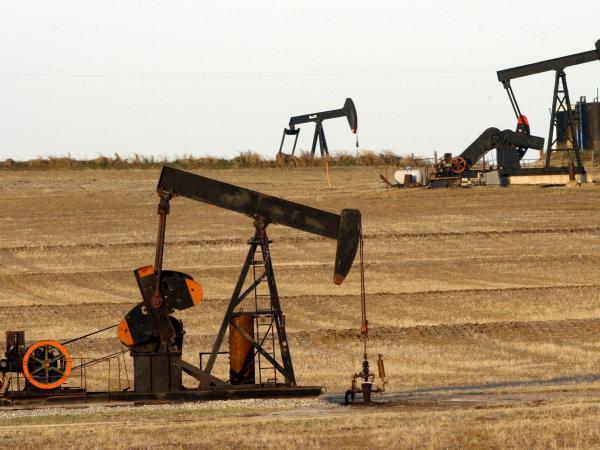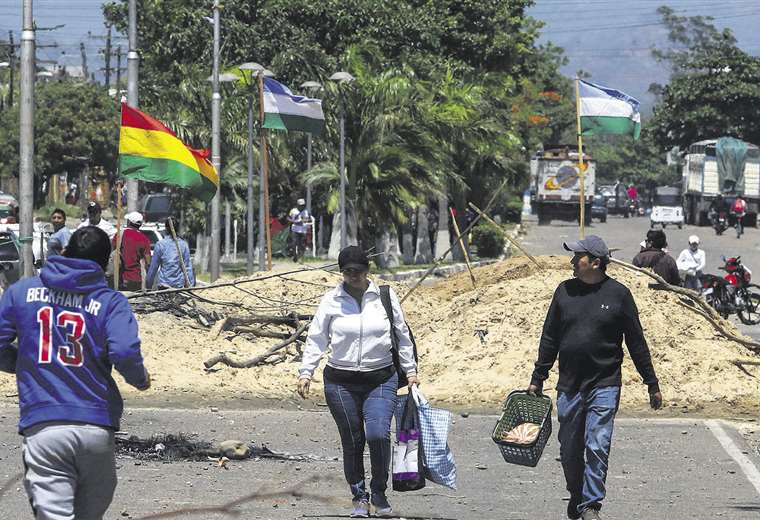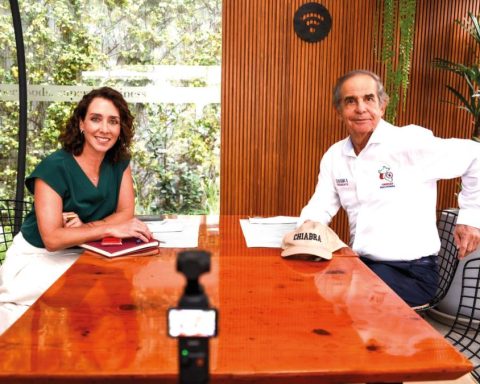Pointing out that inflation is the thorn in the side of the new left that is currently in power in much of Latin America, and warning that if not handled correctly it could bring the return of the right, Bolivia’s former vice president, Álvaro García Linera, addressed the future of politics and the new “progressive cycle” that is positioned in the region.
“I mention inflation because together with the recession they are the privileged scenarios of moments of transition in the economic, political and cultural cycle. And as it was in previous years, it is so today,” said the former number two in the Evo Morales government. (2006-2019), during a conference entitled “Neoliberalism and Human Rights: Debates from Latin American critical theory” held at the Academy of Christian Humanism University (UAHC).
García Linera —with whom President Gabriel Boric is “ideologically close”— placed special emphasis on the fact that inflation accompanied the transition from the liberal cycle to state capitalism and was present in the transition from state capitalism to neoliberalism. “And it is likely that it will also accompany this new transition,” he said. And it is that, in his opinion, we are living in a “liminal time”, a moment of exceptionality in the historical course in which the social future is shown as it is in a shameless way: contingent and random. This scenario would be the ideal moment for social transformations.
“The proposals for new predictive horizons that emerge within the plebeian classes have the extraordinary probability of being put to the test in the face of the emerging social willingness to adopt new cognitive schemes,” said the Bolivian theorist, explaining that this “liminal time” is ” an exclusive space to understand the internal dynamics of the decline and formation of the political, economic and subjective order of societies”.
According to the former vice president of Bolivia and ideologue of the MAS —who has been critical of the appointment of Mario Marcel in the Ministry of Finance of Chile, describing the former president of the Central Bank as part of the “former representatives”—, “in America America we are in a moment of transition, which is not going to be linear, which is going to be crossed by social awakening, collective action, and by moments of withdrawal and contraction, of weakening and fragmentation”.
“The hypothesis that I am using is that this is going to be round trip,” García Linera declared, maintaining that the new political cycle “is going to be marked by short victories and short defeats” for both the left and the right, but that this last bet on a long hegemony, although he acknowledges that “there is no social algorithm”.
The truth, for García Linera, is that “no one knows where the new flow will take place”, but what is more likely, in his opinion, is that since there are things that have not been resolved in the social unrest, things that ” have not fully crystallized yet”, there will be persistent social unrest. This, under other leaderships, other slogans, and therefore “you have to be attentive, feeling where the flow of collective action is going and knowing how to expand it.”
“Don’t forget that the extreme right has the vote they have because, in their own way, they read the malaise,” warned the one who came out of power on November 10, 2019 – the day he resigned together with Evo in the midst of a social revolt fueled by the opposition, after denunciations of electoral manipulation in the October elections of that year, in which Morales and García Linera tried to be re-elected for the third time.
The right, for García linera, has “a proof of an efficient reading of a malaise”, since they have favorable votes in popular sectors. “They have known how to find the language and the way to frame a social malaise”. And those discomforts, for the also academic and student of Karl Marx’s theories, “can be expressed through the vote, the street, rumors, moods, and multiple ways, the most extraordinary and creator of the future being that of the street”.
For this reason, “whoever has the ability to project something lasting will be able to meet the expectations of the people, on the street and in the vote,” said García Linera, for whom the key is “to articulate what people are feeling.” .
“I think it will be a very intense decade, because it is a global problem. The world has no horizon and the continent has no horizon. One that was tried to be built in the first progressive wave that made its effort, but had no repercussions in the world. And that’s why it also reached a limit,” the Bolivian politician mentioned about the first left-wing governments after the dictatorships that the region experienced. Meanwhile, the second wave, for García Linera, “is much more confused and different from the first wave, more expansive, but more confused.”
In any case, considering that “people can’t stand uncertainty”, any transformation would be subject to the economic issue.
“Inflation is a cemetery of projects”
“Be careful, you don’t have it yet, but in societies where there is very high inflation, a leader capable of leading us out of that inflation is the successful way out,” said the professor, stressing that “the right is preparing for this.” In this sense, he expressed that “the left has always had problems with inflation, with exceptions, but they have always been defeated by inflation and that is when the right appears with force.”
Faced with high inflation rates, García Linera mentioned, the right points to a culprit; migrants and those who charge a lot of taxes, for example. And, furthermore, promising to end inflation, they call for austerity and work with a strong hand. “That is a solution, authoritarian, but it is a way out,” he commented.
It is worth mentioning that, although it has partly escaped the inflation that Latin America is experiencing today, Bolivia has experienced hyperinflation in previous years, even reaching a monthly rate of 90% and more. “We are experiencing high inflation and the inability of the left to face inflation of that level. Forty years ago we were useless, and the left did not return to Bolivia for a long time,” recalled García Linera.
“When it shoots up, inflation is a graveyard of projects. And you have to be very careful,” he said. And he added that if the transformation processes are not accompanied by social justice and by reading society “it is certain that the right will return in the next government”, although if the right does not manage to impose a new model of beliefs, it will surely return the left again. For this reason, for García Linera, “this decade will be marked by short victories and short losses.”
Regarding the differences between what Tupaj Katari, also a co-founder of the Guerrilla Army, calls “the first progressive wave” and the second, is that the leaders of the latter are “more administrative,” something that “is the right thing to do to govern in moments of stability, but which becomes incorrect in moments of instability”.
How to go from that to more revolutionary projects? Garcia Linera wondered. “There are a thousand measures,” he replied. And he argued that “more than the revolutionary program to overcome capitalism, one must think about what is the program that allows, on the side of social justice, on the side of the collective, of the common, to face the problems that matter most now to people, such as inflation, work and security”.
“Our job is not to invent, but to compress what has already emerged from society,” he added, indicating that the beginning of the change is “the extension of democracy to production.” That is, “to move from voting to government decisions. From there, to regulatory structures. From there, to the distribution of wealth. And, later, to the ownership of wealth.” In the words of the indigenous leader, “a continuum of democratization must be followed. No step must be skipped.”
“More democracy is greater well-being for the people. Personally, I want to reach a society that overcomes capitalism, but we must move forward step by step with the people, finding in the people the most associative part that points to more democracy “, he concluded.
The region’s turn to the left
One after another, different Latin American countries have elected governments of the left and a new political wave seems to be sweeping the region.
Since 2018, leaders located to the left of the political spectrum have reached the presidency of Mexico, Argentina, Bolivia, Peru, Honduras, Chile and Colombia.
The phenomenon was completed with the October elections in Brazil, where the former leftist president Luiz Inácio Lula da Silva prevailed over the far-right leader and current president Jair Bolsonaro.
While other countries in the region have chosen governments of different political persuasions in recent years, Lula’s victory left Latin America’s seven most populous nations and its six largest economies in the hands of the left.
Álvaro García Linera addressed this phenomenon and highlighted the differences between the left of the early 2000s —of which he was a part together with Morales— and the one that emerged after 2019. For the former Bolivian Secretary of State, until now, the only thing that the governments that have positioned themselves in the region have in common is that “they are not from the right.”
“The first wave was more disruptive, creative,” said García Linera, describing the second as a “more administrative wave, which also brings the projection of wanting to stabilize a political order.”
“In the first wave we were more disruptive and in the second we are more organizers of the political order,” he outlined, reviewing that “before we had to kick the political system and now we have to order it, with us, and be part of that.” In this dichotomy, the opponents are also positioned.
As the left emerges at different periods, the attitude of the right inevitably changes. “Before, morally beaten, weakened, but now there is a reconstituted, enraged and organized right that even takes over the streets and the networks.”
“Before they were dejected and now they are reconstituted, more angry and more consistent,” he added. Therefore, “it is more complicated than in the first wave.”
In any case, García Linera clarified that in politics one cannot be absolutist and stated that there is also a world crisis that places limits on exports, interest rates, and credit policies. “And what there is to distribute in percentage terms is less than what was in the first wave.”
The Bolivian ex-president’s forecast for Latin America is as follows: “This second wave of the progressive left, as long as the board is not changed, will have a moment of short hegemonies, of short victories. Perhaps, with the exception of Mexico, which could have a cycle over 15 years. In the rest of Latin America, if a certain correlation of forces does not change, we are facing a short cycle, a short hegemony, accompanied by a short hegemony of the conservative sectors as well.”
According to García Linera, the coming one “is going to be a very conflictive decade, typical of ‘liminal time’.”
















